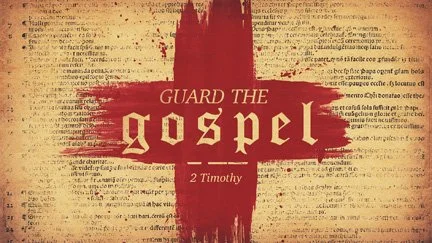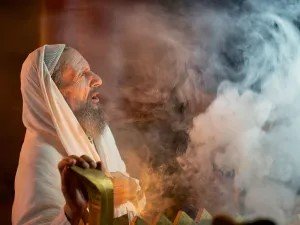Most people think of the city of Sarajevo as the host of the 1984 Olympic Games. But not many years later, the city fell victim to the longest siege of a capital city in the history of modern warfare. During the Bosnian War for independence, the city was under siege from April 5, 1992, till February 29, 1996. A force of 18,000 troops surrounded the city, and launched artillery, mortars, rockets, and bombs, fired tanks, heavy machine guns, and used snipers. During the siege, 11,541 people were killed, including over 1,500 children.
On May 27, 1992, one of the few bakeries that still had a supply of flour was making and distributing bread to the people. A long line stretched down the street at 4 p.m., when suddenly a mortar shell fell directly into the middle of the line, killing 22 people. Not far away a man named Vedran Smailovic lived. He was a 35-year-old musician, and before the war had played cello for the Sarajevo Opera. When he saw the carnage outside his window, he felt compelled to do something about it. And so, he made up his mind to do the thing he did best: make music. For the next 22 days, Smailovic put on his full concert attire, took his cello and a plastic chair, and walked out of his apartment into the battle raging all around him. He sat beside the crater that was made by the mortar shell and played in memory of the dead. His choice of music was Albonini’s Adagio in G minor, one of the most mournful and haunting pieces in classical music. (It was also played at the memorial service in New York City at Ground Zero following 9/11.) Smailovic played while the bombs dropped and the bullets flew. With explosions around him, he made his courageous stand for human dignity, for those who had already been lost to the war, for civilization, and for peace. He shook his cello in the face of bombs, death, and ruin, in defiance of them all. When faced with utter destruction and violence and death, this man chose to take a stand against evil.
We are not all called on to take a stand in the midst of an actual war. But according to Paul’s letter to the Ephesians, all Christians are called to take a stand in the war against evil. He reminds us that our real struggle is not against flesh and blood; we are not fighting against other human beings. Instead, our struggle is against the evil spirits in this world, the spiritual forces of evil. And to win that struggle, we have to take a stand. Paul uses the word four times: take your stand against the devil’s schemes; stand your ground; after you have done everything, stand; stand firm.
It is helpful to remember Paul’s situation when he wrote this letter. Paul was in prison in Rome, near the end of his life. He was chained twenty-four hours a day to a Roman soldier so that he would not escape. And Paul had a lot of time to think about what he needed to communicate to his churches before he was put to death. Paul knew that these early Christians were struggling, not only because some of them were being persecuted by other people, but because they were all under attack from spiritual forces that fight against God.
We may not take the idea of evil spirits literally, but we surely can agree that there is an active power of evil in this world. Klyne Snodgrass writes, “We almost need the demonic to explain the extent in the world. What makes a fourteen-year-old sexually molest and kill a four-year-old? Can humans be that depraved by themselves? What makes one ethnic group attempt genocide on another – be it Germans, Cambodians, Serbs, or Rwandans? Are people so depraved or is the demonic responsible?” We could make a list of the evils in this world: segregation, apartheid, addiction, totalitarianism, genocide, violence, hunger, racism, sexism, nuclear weapons, the attempted bribery of our legislatures through large campaign contributions, obscenity, poverty. The list could go on and on and on. We are engaged in battle with evil.
So how can Christians find the courage to take a stand against evil? Where does our strength come from? Paul says that our strength comes from the mighty power of God. We put on God’s armor in order to stand against evil. Paul was thinking of the armor worn by the Roman infantry and used this as a metaphor for that which protects us in our struggles. God’s armor consists of truth, righteousness, readiness, the gospel of peace, faith, salvation, the word of God, and prayer. When we cling to those things, when we receive them, when we live them, then we find the courage and the strength and the sheer nerve to stand, no matter what.
Taking a stand may not be popular. It may run contrary to public opinion and may result in our being made fun of or worse. And yet, Christians are called to stand firm on our convictions, not to go with the flow. There is a long history of bold believers who have done just that, and who have changed the world, or at least their own little corner of it. For example: In about the year 400, the great Coliseum of Rome was often filled with spectators who came to see the gladiators fight, or to see other “games,” such as having people thrown into the midst of wild animals. The crowds took great delight in the deaths of human beings. One day when the games were going on, a Syrian monk named Telemachus took a stand against this violent practice. In the middle of a gladiatorial fight, he leaped into the arena and yelled, “Stop! This thing is not right! This thing has to stop!” The authorities didn’t appreciate what he had done by interrupting the games, so they had him killed by the sword. But his death made people stop and think, and within a few months the gladiator contests began to decline, and not long after that they stopped altogether. And all because one man dared to speak up against what he knew was wrong. All because one man took a stand.
Another example: Just one day after France surrendered to Nazi Germany, a pastor preached to his small village Huguenot congregation the message that, “the responsibility of Christians is to resist the violence that will be brought to bear on their consciences through the weapons of the spirit.” That group of Huguenots ended up providing sanctuary for over 5,000 Jews during the course of World War II. They were willing to take a stand against evil.
And another: It was March 7, 1965, a day that would come to be remembered as Bloody Sunday. John Lewis, along with other leaders, had gathered with a crowd of peaceful demonstrators at the Edmund Pettus Bridge, ready to march to protest the killing of Jimmie Lee Johnson, who was shot in Marion, Alabama, during a voting-rights march. The crowd that day was made up mostly of women and the elderly, and they had been told not to defend themselves with anything that could be seen as a weapon. There was to be no singing, no chanting, not even any talking. On the other side of the bridge waited 150-200 troopers and deputies; the sheriff had deputized every white man over the age of 21 that he could find. As the demonstrators walked over the bridge, they were attacked and chased as they tried to flee. John Lewis took the first blow, when he was hit in the head with a club hard enough to fracture his skull. But he would go on to participate in many more events during the Civil Rights Movement, and to serve in the U.S. Congress. John McCain wrote of those protestors, they were willing to “walk into the face of injustice and stand their ground.” Like John Lewis, they faced physical danger and took a stand for what was right; they took a stand against evil.
Christians still face evil: just read the paper or watch the evening news, and you know it is true. The reality of sexual harassment in the workplace, continuing racism, divisiveness, addiction, violence in the streets of our cities, the inhumane treatment of illegal immigrants, the lack of ethical behavior by our elected officials at all levels. And there is the evil on a smaller level: people we know making sexist or racist or homophobic jokes, young people being bullied in their schools, people engaging in unethical business practices. We are surrounded by the evidence of the work of evil in our world and in our lives. And we are called to take a stand against it.
It would be easy to be afraid of the struggle. But we have to remember that we are not fighting alone; we are fighting with the help of God, with God’s power and strength, and with God’s armor protecting us. When we speak and live the truth; when we guard ourselves with righteous living; when we act within the parameters of the gospel of peace; when we remain faithful to a faithful God; when we remember that our salvation has already been accomplished; when we draw strength from the message of the gospel; and when we pray and keep on praying, then we are able to be strong and take our stand.
Paul did not ask the Christians in Asia Minor to do anything that he was not willing to do himself. His last words to them were to pray for him so that he might fearlessly make known the gospel, that he would declare it fearlessly. This from a man who was in chains in prison in Rome, in the last days of his life, awaiting execution. He still proclaimed the gospel to anyone who would listen, even to those who would not listen. And he wanted to continue to have the courage he needed to be faithful to what God called him to do.
Being a Christian is not easy. It is hard. It can be very hard. But it is the most important thing we will ever be or do. Christians who are engaged in the struggle against evil are making a difference. That is what keeps the world from being lost entirely. That is what brings the kingdom of God closer to this world. When we are called to take our stand against evil – in whatever form it takes – may we have the courage to take our stand and to fearlessly declare the gospel of Jesus Christ.




























